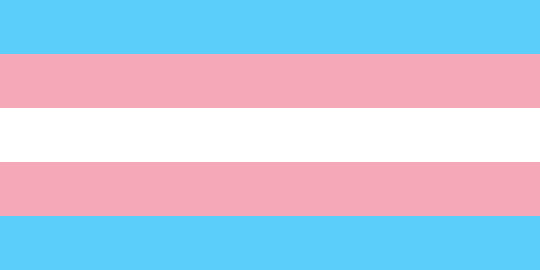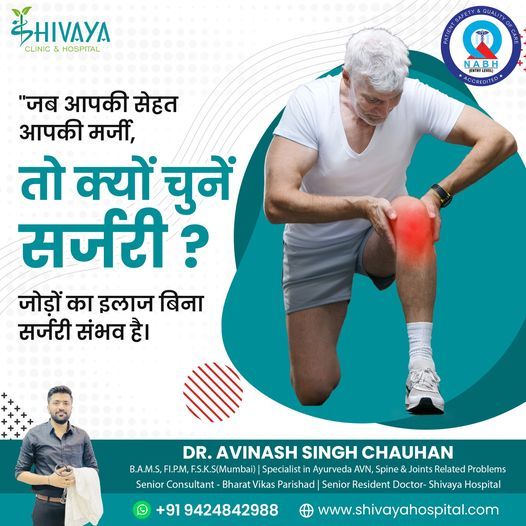#Joints India
Text
the worst part of family abolition trending on this site is the people who defend the extended family. not only your mother and father can abuse and restrict your rights as a child, now 3 aunts and the richest and oldest patriarch uncle can too!
#lets goo#i immediately uncharitably want to drop them into the joint family as it exists in india#family abolition
370 notes
·
View notes
Text



whoever was in the studio when they designed Pavitr and then made this scene needs their ass ate tbh. how did they manage to fit so much trans energy into this.
#drinking the joint testosterone and estrogen tea (TOP TEN TRANS TIPS)#transmasc pavitr#miles morales#spiderman#spider man#pavitr prabhakar#spiderman india#spider man india#transfemme miles#m&m posts
167 notes
·
View notes
Text

#bjd#abjd#abjd photography#ball joint doll#ball jointed dolls#asian ball jointed dolls#venitu#5th motif#francisco martins#francisco martins photography#indian#hindu#ethnic#India
31 notes
·
View notes
Text



Mosquito (2023)
#Mosquito music video#2020s#2023#Yara Shahidi#PinkPantheress#Charithra Chandran#India Amarteifio#Sophie Muller#this music video is literally 4 queens coming together to maximise their joint slay#music video
5 notes
·
View notes
Text
"do your parents have friends" poll viscerally reminded me im Exactly like my dad all his friends are from school and dont live in the same country as him and hes got work buddies but not people he actually hangs out with 🧍
#obviously its also very different culturally and era-ly but you know#my parents have one couple friend who i think we either know by way of just being gujju in sydney or from india but otherwise...#i need to get married so i can have joint custody of someones friend group i think
3 notes
·
View notes
Text
Rheuma Q capsule is a result of combining time tested ayurvedic ingredients, scientifically processed and formulated for instant pain relief like body pain, muscle pain, acute pain, pain related to menstrual cramps, backache, migraine, post-operative pains, rheumatoid arthritis, fever, and painful osteoarthritis. Also its totally on-steroidal tablet works as an anti-inflammatory pain killer.
#Rheuma Q#Joint Pain Relief#ayurvedic capsule#Pain relief Capsule#Herbal Medicine#Rheuma Q Capsules Manufacturer#Rheuma Q Capsules Supplier#Exporter Rheuma Q kolkata#Rheuma Q india#Rheuma q capsule
2 notes
·
View notes
Text
Investigative Agencies of India
Know About The Investigative Agencies Of India
Any country that values its safety and defense establishes a significant focus on having top-notch intelligence expertise. There are numerous intel organizations in our country, specializing in different....
(more…)

View On WordPress
#12. Bureau of Police Research and Investigation (BPR&D)#Central Bureau of Investigation (CBI)#cid#CID India#crime investigation department#Deffence intelligence agency#Directorate of Enforcement#Directorate of Revenue Intelligence#indian investigative agency#intelligence bureau#Investigative agency of India#Joint Cipher Bureau#Narcotics Control Bureau#NatGrid#National counter terrorism center#National Crime Record Bureau#national intelligence grid#national investigative agencies (NIA)#research and analysis wing (RAW)#serious fraud investigation office
2 notes
·
View notes
Text
0 notes
Text
How to Choose the Right Ayurvedic Practitioner for Avascular Necrosis Treatment in India
Avascular necrosis (AVN), also known as osteonecrosis, is a condition where the blood flow to bones, usually the hip, gets disrupted, leading to the death of bone tissue. This condition can cause significant joint pain, disability, and loss of mobility. In India, the rich tradition of Ayurveda provides an alternative, holistic approach to managing AVN, focusing on natural treatments with minimal side effects. Ayurvedic medicine for avascular necrosis in India offers a promising route for those seeking long-term relief.
If you're considering Osteonecrosis Treatment in Ayurveda, selecting the right practitioner is critical to ensure you receive safe and effective care. Here’s a guide to help you choose the right Ayurvedic practitioner for AVN treatment.
1. Understand the Ayurvedic Approach to Avascular Necrosis
Before diving into selecting a practitioner, it's essential to understand how Ayurvedic treatment for joint pain works. Ayurveda focuses on balancing the body’s doshas (Vata, Pitta, and Kapha) to promote health and healing. For AVN, Ayurvedic practitioners recommend:
Herbal formulations that improve blood circulation and tissue regeneration.
Detoxification procedures like Panchakarma to remove toxins.
Dietary modifications to strengthen bones and promote healing.
Tailored physical therapies, including oil massages and yoga, to maintain joint flexibility.

In Ayurveda, every treatment is personalized. Knowing this framework will help you have more productive consultations and understand the course of your treatment.
2. Look for Qualified Practitioners
Ayurveda is a specialized field that requires rigorous training. When looking for a practitioner for Osteonecrosis Treatment in Ayurveda, ensure they are qualified. In India, Ayurvedic doctors typically hold a Bachelor of Ayurvedic Medicine and Surgery (BAMS) degree, which involves extensive study of traditional and modern medicine.
Additionally, look for practitioners with experience in treating bone and joint disorders. Shivaya Hospital, founded by Dr. Avinash Singh Chauhan, is an example of a facility that has gained credibility for offering effective Ayurvedic treatment for joint pain and other chronic conditions, ensuring that treatments are conducted under the supervision of seasoned experts.
Key Considerations:
Ensure the practitioner is registered with the Central Council of Indian Medicine (CCIM).
Verify the doctor's qualifications and experience in treating AVN specifically.
Ask about their experience with similar cases and success rates.
3. Assess the Practitioner’s Experience with Avascular Necrosis
Not all Ayurvedic doctors have experience treating AVN. Osteonecrosis is a complex condition that requires specialized knowledge of bone health, tissue regeneration, and vascular health. Practitioners who have dealt with AVN cases will be able to offer more effective treatment options and better anticipate complications.
You may also want to look for practitioners associated with well-known clinics or hospitals like Shivaya Hospital, where an integrated approach to treatment is emphasized.
Questions to Ask:
How many patients with avascular necrosis have you treated?
What results have your patients seen after treatment?
Do you offer personalized treatment plans based on the severity of the condition?
4. Explore the Treatment Protocols Offered
Ayurveda offers a broad range of treatments, from herbal medicine to detoxification therapies. A good practitioner will suggest a combination of treatments based on your specific condition. For AVN, ayurvedic medicine for avascular necrosis in India often includes herbs like Guggul, Ashwagandha, and Shallaki that promote bone health and reduce inflammation. Panchakarma therapies like Virechana and Basti may also be recommended for detoxification and rejuvenation.
Ensure the practitioner you choose offers a comprehensive treatment plan that includes:
Herbal Medications: Ayurvedic herbs play a significant role in managing AVN by improving circulation, reducing pain, and regenerating bone tissue.
Panchakarma Detoxification: Therapies like Abhyanga (oil massage) and Swedana (herbal steam therapy) to flush out toxins and improve joint mobility.
Dietary Recommendations: To support healing and strengthen bones, Ayurvedic practitioners recommend specific diets rich in calcium and other nutrients.
Yoga and Exercises: Specialized exercises to maintain joint flexibility and improve blood flow to the affected areas.
5. Check Patient Testimonials and Reviews
Patient testimonials and reviews can offer valuable insights into the effectiveness of an Ayurvedic practitioner. This information helps gauge the success rate, the quality of care, and the overall patient experience. Websites, social media, and word-of-mouth recommendations can be useful tools in finding reviews.
At Shivaya Hospital, for example, many patients have shared positive reviews, emphasizing their improvement after receiving Ayurvedic treatments for AVN and other joint disorders. Look for similar institutions with good reputations.
Red Flags:
Avoid practitioners with consistently negative reviews, vague treatment plans, or lack of transparency.
Watch out for exaggerated claims, such as guaranteeing a "100% cure," which may not be realistic for complex conditions like AVN.
6. Evaluate the Facility and Treatment Environment
Where you receive treatment matters as much as who treats you. Ayurveda involves personalized therapies, and a good facility should have the right infrastructure for these. For instance, clinics like Shivaya Hospital are designed to provide comfortable, hygienic, and well-equipped environments for Ayurvedic therapies.
When evaluating a facility:
Ensure it has a proper Panchakarma unit for detoxification therapies.
Check the availability of experienced therapists for massages, oil treatments, and other physical therapies.
Look for clinics that follow strict hygiene standards.
7. Consider Follow-Up Care and Monitoring
The healing process in Ayurveda can take time, especially for a condition like AVN. Follow-up care is essential to monitor your progress and adjust treatment as needed. The practitioner you choose should offer regular follow-up consultations to ensure that the treatment is effective and to address any issues that arise.
At Shivaya Hospital, for instance, patients receive continuous care and are monitored closely throughout their treatment. Ensure that your chosen practitioner offers a similar level of commitment to your long-term recovery.
Important Follow-Up Aspects:
Frequency of follow-up visits.
Adjustments to treatment plans based on progress.
Long-term lifestyle changes recommended by the practitioner.
8. Inquire About Cost and Treatment Duration
Ayurvedic treatments for AVN, while often less invasive than conventional treatments, can still be costly depending on the duration and complexity of the treatment plan. The cost of ayurvedic medicine for avascular necrosis in India varies widely, so it’s essential to ask about the treatment fees upfront. Some Ayurvedic clinics may offer package deals, which can help reduce costs.
Additionally, ask about the expected duration of treatment. AVN typically requires long-term care, and it’s important to have realistic expectations about how long the Ayurvedic treatment will take to show results.
Questions to Ask:
What are the treatment costs, and what’s included?
How long is the treatment plan expected to last?
Are there any additional costs for therapies, herbs, or follow-up consultations?
In conclusion, choosing the right Ayurvedic practitioner for Osteonecrosis Treatment in Ayurveda requires careful consideration of qualifications, experience, and treatment protocols. Institutions like Shivaya Hospital, founded by Dr. Avinash Singh Chauhan, embody the principles of authentic Ayurveda and focus on restoring health without side effects. When selecting your practitioner, ensure they have the necessary experience with AVN, offer comprehensive treatment plans, and provide ongoing care to ensure a successful recovery.
#ayurvedic medicine for avascular necrosis in india#Osteonecrosis Treatment in Ayurveda#ayurvedic treatment for joint pain
0 notes
Text
Orthopedics is a specialized field of medicine dedicated to the diagnosis, correction, prevention, and treatment of individuals with skeletal abnormalities,
#Dr. Hemant Sharma#Dr. Hemant Sharma Best Orhopedic Surgeon India#Dr. Hemant Sharma Top Joint Replacement Surgeon Gurugram#Contact Dr. Hemant Sharma Marengo Gurugram#Dr. Hemant Sharma Contact Number#Dr. Hemant Sharma Email Address#Appointment with Dr. Hemant Sharma Marengo Delhi#Best Robotic Knee Surgeon Marengo Gurugram#Top Robotic Hip Replacement Doctors in Marengo Gurugram
0 notes
Text
The Advantages of Natural Supplements for Joint Pain

One of the most common problems affecting millions around the globe is joint pain. Whether one is elderly, sick or just exhausted from work; this pain reduces their standard living since it can affect anyone. Standard cures like painkillers and anti-inflammatory medicines are normally employed here ranging from chronic nerve pain treatments to back ache therapy options. But what about herbal mixtures? They are preferable in these circumstances because there are no side effects associated with their use. At Ketavs Morning Kick we believe that nature has provided people with everything they need so we crafted our Natural supplements for joint pain within that concept.
Why Choose Natural Supplements?
From herbal, plant, and other organic sources, natural supplements are derived. Their safety is higher than that of pharmaceuticals due to fewer side effects, which makes them suitable for long-term use. Additionally, they often offer a wider range of health benefits that extend beyond joint pain alone.
Reduced Inflammation
Though arthritis feeds inflamed joints, there are other alternatives like turmeric (Curcuma longa) and omega-3 fatty acids which are good at combating it. Turmeric contains curcumin which has the ability to reduce body swelling. Fatty acids found in fish oil help in reducing chemicals that bring about body swelling.
Better Joint Movement and Flexibility
Certain organic supplements such as glucosamine and chondroitin aid in joint health through mobility and flexibility support mechanisms. Glucosamine is a compound that exists primarily within cartilage, which is the tissue surrounding the joints. Therefore, taking Joint support supplements Online with glucosamine prevents damage to cartilage and reduces pain while improving the use of your joints.
Safeguarding against cartilage degeneration
The greatest causative agent of osteoarthritic joint discomforts is deterioration of the cartilages. However, the most effective natural supplements to relieve pain in the joints that actually work against this are MSM (Methylsulfonylmethane) and collagen. Among all proteins found in humans, collagen is the most plentiful; it helps support connective tissue without losing its strength or flexibility.
Relief of pain without causing adverse effects
The conventional way of dealing with joint pains for many people is through the use of pain killers which are sold at local shops, however, such type of drugs may have some negative impacts, particularly when taken over prolonged periods. But there exists another safer alternative which is these natural food supplements.
Overall Health Support
You must bear in mind the fact that people need to focus on their diet when they want to deal with issues regarding joint pain. People must consume large quantities of toys or optimize physical activity sensibly in order to achieve this. However, including omega 3 fatty acids into your diet can help reduce the pain you experience on a daily basis with time leading to less time for recovery from injuries suffered during exercise as well.
Long-Term Benefits
Natural supplements work continuously over time to address the underlying causes of joint pains while painkillers only provide fast and temporary relief. Therefore if you use them for a longer period, there is a possibility of experiencing improved conditions of the joints in the long run.
Conclusion
With the Best natural supplements Online in India, you will be able to maintain good health as well. Our KMK supplements are crafted with premium quality organic substances meant for joint care and to ease your discomfort. Regardless of whether you are experiencing minor stiffness or serious aches, adopting on a daily basis natural supplementation comes in handy. Take a look at what we have in store here at Ketavs Morning Kick and find out how these kinds of nutrients may help you deal with constant back pains or other forms of arthritis.
#Best supplement for joint pain#Joint support supplements Online#Best natural supplements Online in India#Chondroitin supplement online in India#Best glucosamine tablets in india#Best Glucosamine Tablets online#Natural supplements for joint pain#Best natural joint pain supplement#Best joint support supplement Online#Best supplement for joint health#Best glucosamine chondroitin for joints
0 notes
Text
India rejects reports linking opening of Farakka barrage to flooding in Bangladesh | India News
India on Monday categorically denied the reports emerging in Bangladesh that floods in some parts of the neighbouring country is being caused due to the opening of Farakka barrage situated in West Bengal.
External Affairs Ministry spokesperson Randhir Jaiswal, in a press conference said, “We have seen fake videos, rumours and fear-mongering to create misunderstanding. This should be firmly…
#Bangladesh#Bangladesh flood situation#Bangladesh floods#barrage#dam#fake news#Farakka barrage#fllod in Bangladesh#floods#Ganga river#Gumti river#India#indian express#joint river commission#mutual cooperation#Padma river#water flow
0 notes
Text

What Is Knee Replacement Surgery?
Knee replacement, also known as knee arthroplasty, is a surgical procedure in which the damaged parts of the knee joint are removed and replaced with artificial parts or prostheses. The prostheses are typically made of metal and plastic and are designed to mimic the function of a healthy knee joint.
It’s typically only considered after all, or most nonsurgical options have been exhausted, and if your quality of life is significantly impacted by the pain.
Types of Knee Replacements
There are several types of knee replacement surgery available, including:
Total knee replacement (TKR): The most common type, which involves removing the damaged parts of the knee joint and replacing them with artificial parts, or prostheses, typically consists of a metal component that replaces the thigh bone (femur) and a plastic component that replaces the shin bone (tibia).
Partial knee replacement (PKR): Also known as unicompartmental knee replacement, involves replacing only the damaged part of the knee joint rather than the entire joint and is typically recommended for individuals with arthritis that is confined to one compartment of the knee.
Revision knee replacement: A type of knee replacement surgery performed when a previous knee replacement surgery has failed or has become loose. It involves removing the previous prosthesis and replacing it with a new one.
Customized knee replacement: This type of knee replacement surgery is done by using a CT scan of the patient’s knee and using the data to create a prosthesis that is customized to the patient’s individual knee anatomy.
Minimally invasive knee replacement: This type of knee replacement surgery is done through a smaller incision, which can reduce recovery time and minimize tissue trauma.
Underlying Causes
Knee replacement surgery is typically recommended for individuals with severe knee pain or disability caused by osteoarthritis, rheumatoid arthritis, or other similar conditions. Not everyone with knee arthritis will need a knee replacement, and the decision is typically based on the balance between the pain and disability caused by the knee problem and the risks and benefits of the surgery. Your doctor will consider your overall health and your goals for treatment.
Osteoarthritis is the most common reason for knee replacements, which is a degenerative condition that causes the cartilage in the knee joint to wear away. Rheumatoid arthritis, another main reason for replacement, is an autoimmune disorder that causes inflammation in the joints.
Other conditions that can lead to knee replacement surgery include trauma or injury to the knee joint that has caused damage to the cartilage or bones, gout, a type of arthritis caused by the buildup of uric acid crystals in the joint, osteonecrosis, where the bone tissue dies due to a lack of blood supply; and pseudogout, a type of arthritis that causes a buildup of calcium pyrophosphate crystals in the joint.
What Are the Signs You Might Need a Knee Replacement?
Signs that may indicate a need for a knee replacement are:
Severe pain: Pain in the knee joint that interferes with daily activities and is not relieved by over-the-counter pain medication.
Stiffness: Difficulty in moving the knee joint or feeling stiffness in the joint, especially in the morning or after sitting for long periods.
Swelling: Inflammation and swelling in the knee joint which can make the knee appear red and warm to the touch.
Bone-on-bone: A feeling of bone grinding on bone in the knee joint, which can be accompanied by a clicking or popping sound.
Loss of function: Difficulty in standing up, climbing stairs, or walking, which can make it hard to perform daily activities.
Deformity: A visible deformity in the knee joint, such as a bowlegged or knock-kneed appearance.
#knee replacement surgery#hip replacement#joint replacement#hip replacement surgery#hip replacement cost in india
0 notes
Text
8 Al Qaeda Suspects Arrested in Jharkhand Joint Raids
National agencies, ATS, and Delhi Police conduct operations across 22 locations
Joint raids in Jharkhand lead to arrests of suspected Al Qaeda members, including a doctor, with weapons seized.
RANCHI – On Thursday, eight Al Qaeda suspects, including a doctor, were apprehended in Jharkhand as a result of joint searches conducted by the Delhi Police, state ATS, and national agencies in 22…
#Al Qaeda arrests in Jharkhand#Al Qaeda recruitment in India#राज्य#Delhi Police counter-terrorism#Dr. Ishtiyaq Al Qaeda suspect#Indian counter-terrorism efforts#Jharkhand ATS operations#Jharkhand terrorism connections#joint anti-terror raids#Rajasthan terror arrests#state#terrorist weapons seizure
0 notes
Text
https://www.painflame.com/pain-relief-with-chiropractic-therapy/
No.1 chiropractic therapy in Gurgaon at Painflame offers top pain relief services. Our top chiropractors specialize in advanced techniques to treat back, neck, and joint pain. Experience personalized, holistic care and long-lasting results with the best chiropractic services in Gurgaon.
#Best chiropractic treatment near me#Best chiropractor in Gurgaon#Best chiropractor in India#Chiropractic care for back pain#Top chiropractic clinic near me#Chiropractic adjustments near me#Chiropractic treatment for joint pain#Expert chiropractic care in Gurgaon#Chiropractic therapy for sports injuries#Affordable chiropractic treatment near me#Experienced chiropractor for arthritis#Chiropractor for posture correction near me#Best wellness chiropractic therapy#Chiropractic care for spine health#Professional chiropractic services near me#Effective chiropractic adjustments in Gurgaon#Chiropractic pain relief near me#Top-rated chiropractor near me#Chiropractic care for neck pain#Holistic chiropractic treatment in Gurgaon#Chiropractor for sciatica treatment near me#Chiropractic treatment for neck pain#Chiropractic adjustments for sciatica#Chiropractic therapy for herniated discs#Chiropractic treatment for migraines#Chiropractic care for frozen shoulder#Chiropractic adjustments for knee osteoarthritis#Chiropractic therapy for nerve pain#Chiropractic treatment for postural alignment#Full body chiropractic adjustments
0 notes
Text
'It felt good to just be at the border and raise slogans for peace' - Harsh Mander
"If it's not one, it's the other" - Personal Political: Beena Sarwar's followup column on the joint Pakistan-India Independence Days celebrations at Wagah border. Indians were stopped at Friendship Memorial and not allowed to proceed to Zero Point.
This year, when Pakistani authorities granted permission after a decade for peace activists to jointly celebrate Pakistan and India’s Independence Days at Wagah border, the Indians were not allowed to reach Zero Point.
PERSONAL POLITICALBy Beena Sarwar / Sapan News
“If it’s not one, it’s the other,” commented Salima Hashmi with a wry smile.
The prominent artist and educator in Lahore was…
#14 august#educationist Mohini Giri#Friendship Memorial#I.A. Rehman#joint India-Pakistan Independence Day celebrations#kamla bhasin#Karamat Sahib#labour leader Karamat Ali#Peace Hankies#peacemongers#Salima Hashmi&039;s#Southasia Peace Action Network
0 notes